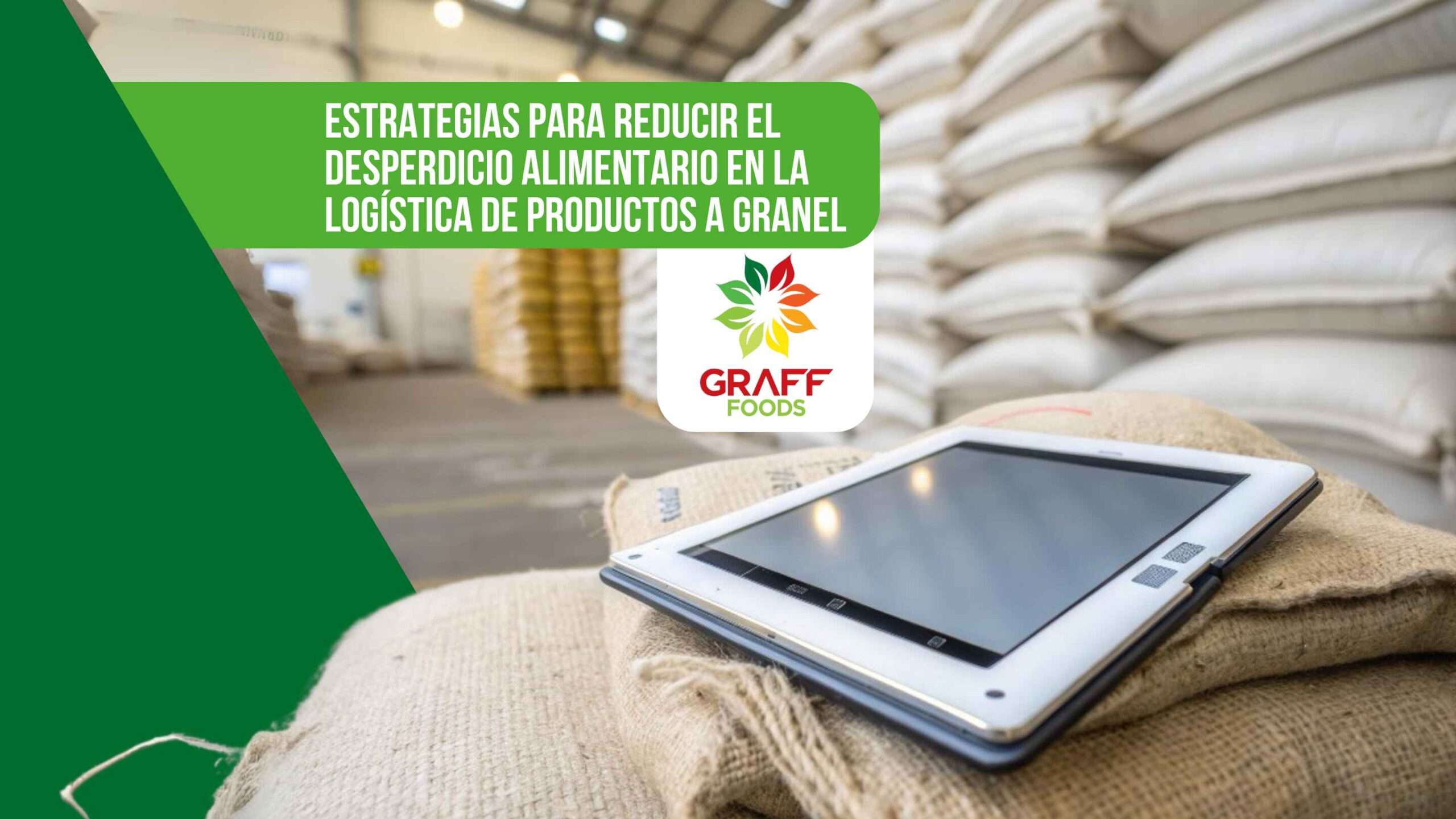Food waste reduction in logistics is one of the most pressing issues in the global food industry. As demand for bulk products grows and sustainability becomes a priority, businesses must adopt effective measures to minimize losses throughout the supply chain. Through innovative solutions and sustainable practices, it is possible to enhance logistics efficiency, reduce waste, and optimize operational costs. This article explores the most effective strategies to achieve these goals.
For those managing bulk product logistics, every stage of the process must be optimized to prevent unnecessary losses. Food waste reduction in logistics is not just about sustainability—it directly impacts efficiency and profitability. Below, we break down key strategies that can help mitigate waste in this sector.
1. Implementing Innovative Technologies
Technology plays a vital role in food waste reduction in logistics.Digital and green solutions are transforming the way bulk food products are handled, stored, and distributed.
1.1. Digital Platforms for Food Donation Management
Food waste reduction in logistics is not only about optimizing transportation and storage—it also involves efficiently redirecting surplus products. Digital platforms can streamline the donation of perishable food, ensuring it reaches those in need before it spoils. For example, Spain’s Federation of Food Banks has developed "Plan B," a platform that improves food traceability and prevents excess stock from ending up in landfills.
1.2. Smart Sensors for Freshness Monitoring
One of the most promising innovations the use of smart sensors. These devices provide real-time data on the freshness of bulk food products. Researchers at the University of Alicante, for instance, have developed a colorimetric biosensor that changes color based on food decomposition levels. This allows logistics operators to quickly identify and address products that are nearing spoilage, preventing unnecessary waste. food waste reduction in logistics..
2. Optimizing Storage and Transportation
Efficient storage and transportation are essential to minimizing waste. Improving storage conditions extends the shelf life of bulk products and ensures food quality.
2.1. Proper Storage Conditions
Maintaining optimal temperature and humidity levels is critical to preserving bulk food. Real-time monitoring systems help detect fluctuations that could compromise product quality, contributing to food waste reduction in logistics.Leading companies in the industry are investing in these systems to maintain food integrity and prevent spoilage.
2.2. Reusable Packaging Solutions
Reusable packaging also plays a role in food waste reduction in logistics.Retailers such as Mercadona have introduced reusable crates for fruits and vegetables, which not only cut down on packaging waste but also enhance the efficiency of bulk product handling.
3. Partnering with Charitable Organizations
Strategic partnerships with food banks and other charitable organizations can effectively prevent waste while supporting communities in need.
3.1. Efficient Donation Channels
Recent regulations in various countries encourage food donation, aiding in food waste reduction in logisticsFood banks and similar organizations have well-established logistical frameworks to handle perishable goods before they spoil. By collaborating with these entities, businesses ensure surplus food is efficiently redistributed rather than wasted.
4. Workforce Training and Education
Educating personnel on proper food handling and storage practices is essential to preventing unnecessary waste at every stage of the supply chain.
4.1. Best Practices in Food Handling and Storage
Comprehensive training in food handling and inventory management is a key factor Implementing the FIFO (First In, First Out) system ensures older products are used first, preventing items from being forgotten and wasted food waste reduction in logistics..
5. Business Model Innovation
Sustainability and innovation are driving forces behind modern business models aimed at combating food waste.
5.1. Zero-Waste Supermarkets
Zero-waste supermarkets are gaining traction across Europe. In France, for example, the "Tout Nu" supermarket has adopted a 100% plastic-free model, offering bulk foods in reusable packaging. This initiative contributes to food waste reduction in logistics. by eliminating excess packaging waste and promoting more sustainable consumer habits.
6. Inventory Planning and Management
A well-structured inventory management system helps forecast demand accurately and prevents unnecessary product accumulation.
6.1. Demand-Based Purchasing Strategies
Purchasing decisions based on real demand analysis and consumption trends help avoid excessive stock that may go to waste. This approach not only prevents food loss but also optimizes resource allocation, reinforcing food waste reduction in logistics..
7. Utilizing Imperfect Food Products
Many food products that don’t meet aesthetic standards are discarded, even though they remain perfectly edible. Repurposing these “imperfect” items is another effective strategy.
7.1. Integrating Imperfect Produce into the Supply Chain
Several companies have started incorporating these "ugly" products into their production lines, preventing unnecessary waste. This approach not only reduces food loss but also fosters a more conscious and responsible consumption culture.
8. Raising Awareness and Promoting Sustainable Practices
Creating awareness among all stakeholders in the supply chain is key to successfully implementing food waste reduction in logistics strategies.
8.1. Employee Awareness Programs
Corporate awareness programs can effectively promote waste reduction efforts. Continuous education about the environmental and financial impacts of food waste motivates employees to adopt more responsible practices and contribute to food waste reduction in logistics..
Conclusion
The food waste reduction in logistics. is not just a trend—it is a necessary shift to address modern industry challenges. From adopting advanced technologies to forming partnerships with food banks, every action counts. If you operate in the bulk food supply chain, implementing these strategies can enhance operational efficiency, lower costs, and support global sustainability efforts.
To optimize your food logistics and minimize waste, we offer tailored solutions to meet your needs. Get in touch with us to discuss how Graffoods can support the efficiency and sustainability of your supply chain.

